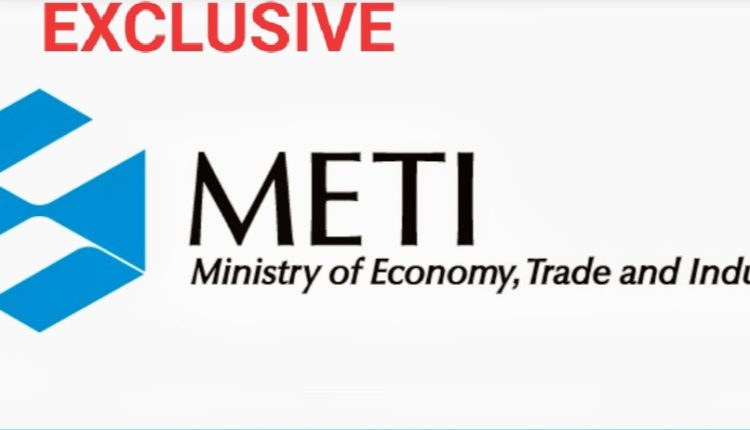Japan’s METI steps in, Flags concerns of Japanese Cos facing customs issues under CAROTAR 2020
If the situation does not improve, not only would it be an obstacle for foreign companies looking for investment opportunities in India, but also it would divert those investments towards other countries, warns METI.
 TOKYO: Moved by the immense problems being faced by the Japanese companies in India at various ports after the promulgation of the new customs Rules of Origin in September, Japan’s Ministry of Economy, Trade, and Industry (METI) have warned India of its negative impact on the bilateral trade prospects as well as on economic relations between both the countries.
TOKYO: Moved by the immense problems being faced by the Japanese companies in India at various ports after the promulgation of the new customs Rules of Origin in September, Japan’s Ministry of Economy, Trade, and Industry (METI) have warned India of its negative impact on the bilateral trade prospects as well as on economic relations between both the countries.
In a strong-worded letter written to the Embassy of India in Tokyo recently, Fukuoka Noriyoshi,
Director, Southwest Asia Office, Trade Policy Bureau, Ministry of Economy, Trade, and Industry (METI), stated that the new Rules of Origin (CAROTAR 2020) – Customs (Administration of Rules of Origin under Trade Agreements) Rules, 2020 implemented from September 21 could not only deviate from the India-Japan CEPA but also lead to a failure in keeping confidential information as agreed upon India-Japan CEPA (Comprehensive Economic Partnership Agreement).
“If the situation does not improve, I am worried that not only would it be an obstacle for foreign companies looking for investment opportunities in India, but also would it divert those investments towards other countries,” warned the METI Director in his letter to Mona Khandhar, Minister (Economic & Commerce), Embassy of India Tokyo, and Sumita Dawra, Joint Secretary, Department for Promotion of Industry and Internal Trade (DPIIT) Ministry of Commerce and Industry.
METI has said that the claim of a preferential rate of duty could be denied without verification under the new Rules, and also the obligation to have importers to confirm the contents of the certificate would lead to a failure in keeping confidential information as agreed upon India-Japan CEPA. Also, the exporters might refrain from doing business with India in order to avoid disclosing their confidential commercial transactions.
While citing few crucial examples of the problems the Japanese companies are facing in India, METI said Indian customs orders to stop all imported items under FTA schemes from Japan or ASEAN countries and asks for the Form I at all the time at several Indian ports, especially at Chennai Port, even though CBIC’s brochure says that Indian customs will ask Form I when there is a doubt on the certificate of origin.
Japanese importers submit the information in accordance with CBIC’s brochure. However, their papers are rejected on the ground that Indian customs insist to submit an accurate Regional Value Content (RVC) rate or detail production process.
Also, it takes more time for receiving FTA merit like a maximum of 15 days for authority’s confirmation after the importer’s Form I submission. Some Japanese importers decide to pay full customs duty involuntary because they need to avoid the shortage of their component production to support their customers in India.
 “On the basis of the above recognition, I would like to seek your further assistance with regards to the CAROTAR, 2020, in case the problems that Japanese companies face does not resolve,” stated, Fukuoka Noriyoshi.
“On the basis of the above recognition, I would like to seek your further assistance with regards to the CAROTAR, 2020, in case the problems that Japanese companies face does not resolve,” stated, Fukuoka Noriyoshi.
The CAROTAR 2020 – Customs (Administration of Rules of Origin under Trade Agreements) Rules, 2020 implemented vide notice No. 81/2020 from 21st September, this year makes it compulsory for the importers to not only declare the country of origin of imported goods but also the cost of components used therein to avail low duty customs benefits, thus putting at risk the confidentiality of the exporters.
Earlier the Japanese companies operating in India have univocally raised the issue with the Indian government and urged it to suspend the CAROTAR 2020 notification for now, and review the FTA/EPA terms to ease the situation.
Related article: Over 600 Japanese Cos. show up with issues related to new Customs Rules of Origin under CAROTAR 2020
Also Japan External Trade Organization (JETRO) in India has raised the same issue.
Seeking intervention of the Prime Minister Office (PMO) and Ministry of Commerce, the Japan Industry has said if required, the Indian government should not hesitate to amend the verification process of goods in the bilateral treaty through the diplomatic channel with related countries and ensure a uniform standard of International Treaty and Indian Domestic law.
Related article: Suspend new Customs Rules of Origin CAROTAR 2020, Review terms of EPA, FTA



